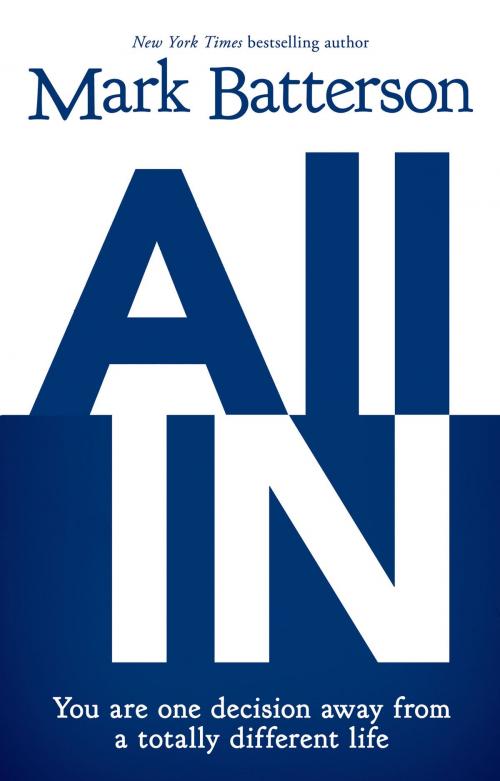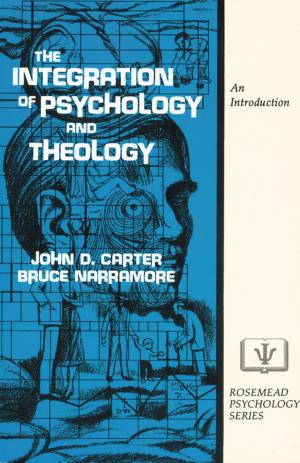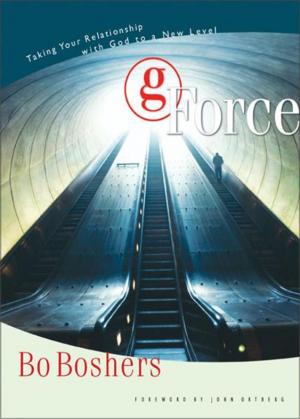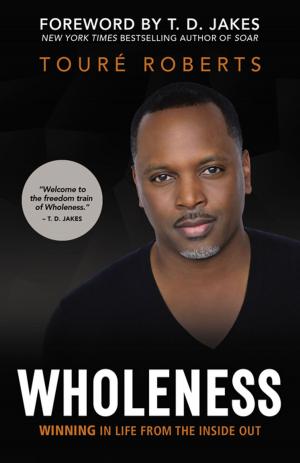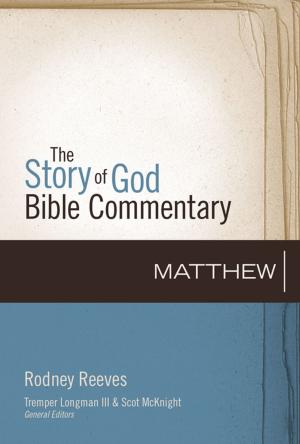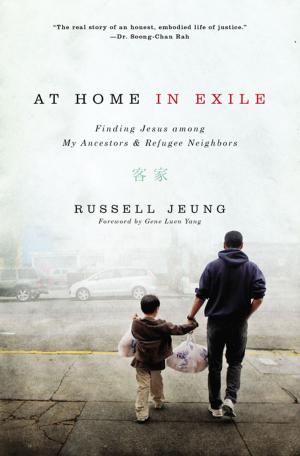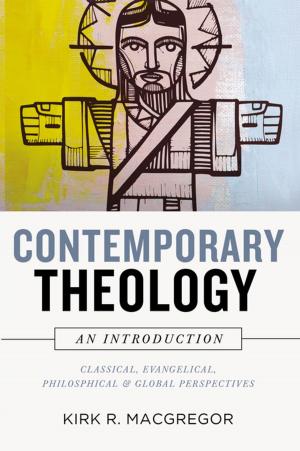All In
You Are One Decision Away From a Totally Different Life
Nonfiction, Religion & Spirituality, Inspiration & Meditation, Christianity, Christian Life| Author: | Mark Batterson | ISBN: | 9780310333067 |
| Publisher: | Zondervan | Publication: | September 24, 2013 |
| Imprint: | Zondervan | Language: | English |
| Author: | Mark Batterson |
| ISBN: | 9780310333067 |
| Publisher: | Zondervan |
| Publication: | September 24, 2013 |
| Imprint: | Zondervan |
| Language: | English |
The Gospel costs nothing. You can’t earn it or buy it. It can only be received as a free gift compliments of God’s grace. It doesn’t cost anything, but it demands everything. It demands that we go “all in,” a term that simply means placing all that you have into God’s hands. Pushing it all in. And that’s where we get stuck—spiritual no man's land. We’re afraid that if we go all in that we might miss out on what this life has to offer. It’s not true. The only thing you’ll miss out on is everything God has to offer. And the good news is this: if you don't hold out on God, God won't hold out on you. Readers will find Batterson’s writing filled with his customary vivid, contemporary illustrations as well as biblical characters like Shamgar and Elisha and Jonathan and . . . Judas.
No one has ever sacrificed anything for God. If you always get back more than you gave up, have you sacrificed anything at all? The eternal reward always outweighs the temporal sacrifice. At the end of the day, our greatest regret will be whatever we didn’t give back to God. What we didn’t push back across the table to Him. Eternity will reveal that holding out is losing out.
The message of All In is simple: if Jesus is not Lord of all then Jesus is not Lord at all. It’s all or nothing. It’s now or never. Kneeling at the foot of cross of Christ and surrendering to His Lordship is a radical act of dethroning yourself and enthroning Christ as King. It’s also an act of disowning yourself. Nothing belongs to you. Not even you.
Batterson writes, for many years, I thought I was following Jesus. I wasn’t. I had invited Jesus to follow me. I call it inverted Christianity. And it’s a subtle form of selfishness that masquerades as spirituality. That’s when I sold out and bought in. When did we start believing that the gospel is an insurance plan? It’s a daring plan. Jesus did not die just to keep us safe. He died to make us dangerous.”
The Gospel costs nothing. You can’t earn it or buy it. It can only be received as a free gift compliments of God’s grace. It doesn’t cost anything, but it demands everything. It demands that we go “all in,” a term that simply means placing all that you have into God’s hands. Pushing it all in. And that’s where we get stuck—spiritual no man's land. We’re afraid that if we go all in that we might miss out on what this life has to offer. It’s not true. The only thing you’ll miss out on is everything God has to offer. And the good news is this: if you don't hold out on God, God won't hold out on you. Readers will find Batterson’s writing filled with his customary vivid, contemporary illustrations as well as biblical characters like Shamgar and Elisha and Jonathan and . . . Judas.
No one has ever sacrificed anything for God. If you always get back more than you gave up, have you sacrificed anything at all? The eternal reward always outweighs the temporal sacrifice. At the end of the day, our greatest regret will be whatever we didn’t give back to God. What we didn’t push back across the table to Him. Eternity will reveal that holding out is losing out.
The message of All In is simple: if Jesus is not Lord of all then Jesus is not Lord at all. It’s all or nothing. It’s now or never. Kneeling at the foot of cross of Christ and surrendering to His Lordship is a radical act of dethroning yourself and enthroning Christ as King. It’s also an act of disowning yourself. Nothing belongs to you. Not even you.
Batterson writes, for many years, I thought I was following Jesus. I wasn’t. I had invited Jesus to follow me. I call it inverted Christianity. And it’s a subtle form of selfishness that masquerades as spirituality. That’s when I sold out and bought in. When did we start believing that the gospel is an insurance plan? It’s a daring plan. Jesus did not die just to keep us safe. He died to make us dangerous.”
